What Happens When A Business Won’t Accept Cash For Payment?
An increasing number of businesses are refusing to accept cash as payment, that raises some interesting social and legal issues.
Over the past several years there have been a number of reports, many of them chronicled here at Outside The Beltway in one form or another, about the manner in which technology and habits are changing the way that we interact with businesses, and even how we pay for the things we want to pay. The latest example of that to jump out at me came early this morning when I was perusing headlines at The New York Times regarding a number of new restaurants or eateries that were refusing to accept cash as a form of payment and instead mandating that customers can only pay via either credit card or a mobile app, be it one tied to the restaurant itself or something such as Apple Pay or Android Pay. The details of the story aren’t particularly important unless you happen to live in New York City or plan on visiting there sometime in the near future and plan on visiting one of these restaurants. Like me, though, you may have wondered how it is that a business can refuse to accept cash at all as a form of payment. Yes, it’s been common over the years to see businesses put up signs saying they don’t accept “high denomination” currency such as a $50 or $100 bill, especially when the motivation for the policy is to limit risk by not requiring employees or registers to hold on to large amounts of cash late at night or on the weekends. However, as the article notes, every piece of American currency contains language stating that it is “legal tender for all debts public and private.” Doesn’t that mean that businesses are obligated to accept cash if a customer offers it?
Well, not exactly:
[H]ow is this even allowed? Doesn’t the dollar bill say it’s “legal tender for all debts, public and private.” The Federal Reserve’s website saysthat notwithstanding that language, there is no federal law compelling a business “to accept currency or coins as payment for goods or services.”
Asked why the $8.71 a customer owes for that Turmeric Sweet Potato Hummus Toast she just ordered is not considered a debt, the Federal Reserve offered a partial explanation, but it begins with the words “for purposes of illustration, and not for attribution to the Fed,” so we cannot share the rest. But a professor at the New York University School of Law who teaches contract and commercial law, Clayton Gillette, laid it out.
First of all, he said, you do not have a debt until after you receive a good or a service. What about at a sit-down restaurant, where you pay after you eat? “Assuming the restaurant lets you know up front that they don’t take cash, they’re offering to serve you a meal, but they are offering it on their terms,” Professor Gillette said. “If you consume the meal, you’ve accepted the terms of the contract.”
In other words, if a business tells you up front that it doesn’t accept cash and you proceed to make a purchase or place an order anyway, you’ve accepted the terms of their willingness to provide you with the good(s) or service(s) in question, including the provision that says they only accept payment in certain forms or via certain methods. On some level, of course, this is understandable since one still runs into businesses that don’t accept credit cards as a payment option because they don’t have the equipment or account(s) necessary to do so. Those who prefer to use cash, though, might object to this analogy since there is arguably a distinct difference between a private payment method such as credit cards and the cash issued by the Federal Government, which we have at least led to believe can be used anywhere at any time. As I noted above, that has never really been universally true since its common for businesses to decline to accept high denomination bills. In any case, it turns out that what we’ve been led to believe about universal acceptance of cash isn’t true at all.
Among other things, of course, there are several social issues raised by the rise of “cashless” businesses and the increasing lack of acceptance of cash. The most obvious concern, of course, arises for those people who don’t have credit or debit cards that can be used for payment not because they choose not to but because they don’t qualify for one based on either bad credit reports or a simple lack of income. Locking these people out of participating in the economy even in a small way at, as of now, a limited number of eateries they probably wouldn’t visit in any case. is arguably problematic on several levels. I’m not suggesting that it should be Federal Law that all forms of cash be accepted by all bricks-and-mortar businesses, however, it’s likely that some accommodation will need to be made.
This change also raises other issues, some of which I have raised in other posts I’ve written about the slow march toward a cashless society (see here and here), but perhaps the most prominent concern is one of privacy. Slowly but surely, we’re moving more and more in the direction of a cashless society where even the smallest payments will be made either via a physical credit card, a mobile app, or some form of verification of identity. That means that outside of personal one-on-one transactions (which themselves can be paid for via apps and services such as PayPal that have been available for years). there will be virtually no transaction we engage in that won’t be traceable and stored on a server somewhere. This will have an impact for a wide variety of reasons.
This raises real implications in the law for concepts such as the ‘reasonable expectation of privacy’ that plays a role in determining the boundaries of protection provided by the Fourth Amendment, of course, because it potentially means that, even without a warrant, law enforcement could gain access to a whole host of financial and personal information about an individual that they would not be able to find out in an economy that relies primarily on cash. As I’ve already noted with regard to several Supreme Court and other cases that touch on these issues, this means that courts will need to find a way to balance privacy concerns and expectations that are far different from what they were thirty years ago or more with existing law on issues such as when a search warrant is required to access certain information. Outside of government, it will also mean that more and more of our personal information will be in the hands of private companies who may or may not have the best interests of the people whose data they have access to at heart when they act. This could require Congress to step in to spell out some new set of privacy rules for the digital age not unlike those it created for health care in the form of the privacy rules covered by the Health Insurance Portability and Accountability Act (HIPAA), which included new privacy rules regarding medical data and required health care providers, insurers, and others to take certain steps to ensure that such data was kept private and only shared as permitted by law. Whatever the solution is, though, it would seem that the days of the cashless society are coming faster than we may have previously anticipated. Hopefully, we’ll be ready for it.
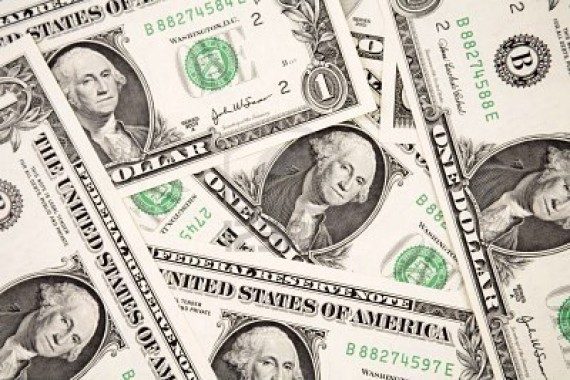

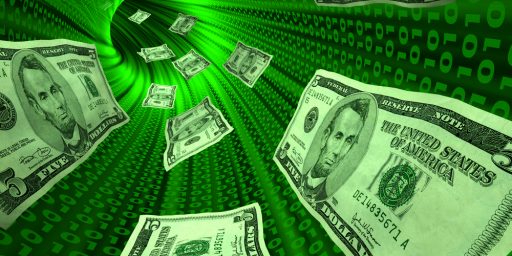
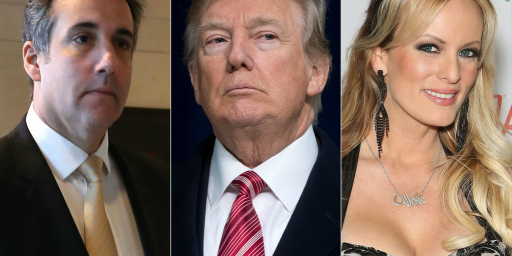
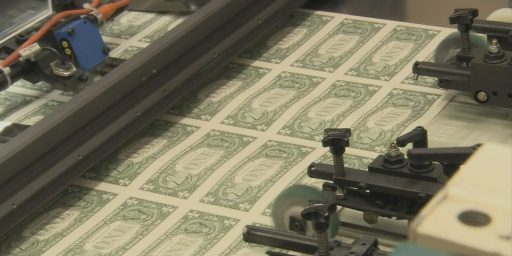
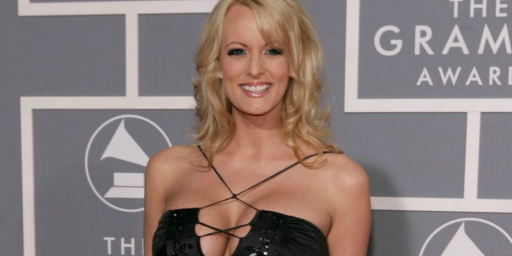
Credit cards aren’t really private. They still require transfer of reserve balances through the Federal Reserve as the user’s payment creates a new deposit in the payees account.
But there is no legal requirement for private persons to operate in the official currency. The only entity required to accept dollars is the U S. government itself. It is the issuer of the currency and therefore must accept that currency to settle the debts we as citizens owe to the sovereign. There is nothing to stop anyone from making their own money and trying to get someone else to accept it.
There are other ways to do cashless payments. I’m not sure of the exact terminology, but there is a standard for a ‘stored value card’ which could be purchased for $100 cash and then used like a credit card. It uses chip technology…I think it is used other places in the world, but not the US. I know that the US military has used this at some deployment locations. The cards are completely transferable, they are as valued as they cash they ‘contain’.
I can always pay my dealer in cash cards from Walmart.
Around here it is the opposite. There are any number of
businesses that take only cash. I remember a history teacher telling us that it is unconditional to refuse cash: read the “legal tender” phrase and legal explanations.
I am reminded of the account a while back of a young girl who was actually detained for trying to pay for her school lunch with a $2 bill! The lunchroom manager and the police officer they called in thought it was counterfeit! They let her go when another police officer confirmed it indeed was real money! We live in an age of total ignorance when it comes to people’s knowledge about our monetary system! The result of reliance on plastic money! Just ask someone about the Bureau of Engraving. They have no idea how the system works.
One of these days we will have to return to a cash only economy. We will be in a heap of trouble. People will find out with a shock just how little cash there is!
.
Privacy in the digital age is already an illusion anyway. Rather than trying to make new rules (which will inevitably be flouted) it would probably be more prudent to just accept the fact that almost nothing is truly private anymore.
As for the 4th Amendment, obviously as someone who is not a lawyer, I’m not going to pretend I should debate its meaning with you. But it seems to me that over time we (society) have perverted the intentions of some of our bill of rights protections. The problem is, there are too many laws. It’s entirely too easy for the average citizen to do something illegal on any given day. Because of that, having protections against unreasonable search and seizure makes sense. But I don’t believe it was ever the intention that the 4th Amendment should facilitate the knowing commission of criminal actions. I guess my point is, while I do see some potential downsides of a 100% cashless society, if the elimination of cash makes it harder for some people get away with doing things like dealing drugs or cheating on their taxes, that would be a feature, not a bug.
I presume these are businesses with large ticket items only? Because if you can pay for coffee only with CC that’s an extra $.23 per transaction, that should hurt the bottom line. Of course, on $5 coffee in NYC that might not matter.
Thread jack:
Apparently Trump spent Christmas rereading his own twitter stream, because he decided to fave one of them:
In Mexico various online companies, such as Netflix, sell prepaid cards at supermarkets and convenience stores. These not only can be bought with cash, some of them can only be paid for in cash.
Another common thing here is online stores will take payment by bank deposit (cash or check, or even a transfer; all checks clear by noon the next business day), or through a third party such as a supermarket or convenience store. This is very helpful for people who don’t have a credit card or don’t want to use one online.
@John Peabody: “I’m not sure of the exact terminology, but there is a standard for a ‘stored value card’”
I got one of those recently; it required proof of identity to activate.
Clearly this will result in a surplus of cash. If nothing is done I fear we may be buried in rejected banknotes. It is in moments of crisis like this that Real Americans step up to the plate, and if not me, then who? If not now, when?
So, I can today announce that I will offer a home to any and all excess cash. You can ship it straight here. I’ll kick one of the kids out and use their room. Large denominations welcome.
@Todd:..if the elimination of cash makes it harder for some people get away with doing things like dealing drugs…
It’s way too late for that.
When I was in college back in the ’60s my dealer, who I had gone to High School with, would not only take my $20 check for a lid of weed (1oz.), he would hold it for a day or two til I got paid and actually had $20 to cover it.
Your Cash ain’t Nothing but Trash
@Ben Wolf:
Scrip was made illegal under the Fair Labor Act of 1938. Although that was intended to apply to companies paying their employees in scrip I suspect it could apply to merchants as well. The real question might be whether merchants may refuse cash while neither accepting checks nor maintaining house accounts. I suspect they can’t.
@Mu:
I guess it would depend on the volume of business. That extra surcharge might be worth it to not have to worry about the hassle of having cash on premise and till discipline. Not everyone is a business is allowed access to the money normally so it takes at least one employee out of play and dedicates them to cashing out. Not to mention having to ensure you have all the proper denominations on hand, periodic bank runs, security issues, etc. Card scanners, however, are easier to operate and – theoretically at least – less likely to lead to theft from the business itself.
If you’re a small business but handling a buttload of work per day, $.23 per transaction is cheaper then hiring an employee to be at the register instead of actually getting the orders out. I’ve eaten at some local cafes where cash was severely frowned upon because it held up the line – I watched 5 or 6 other people be cashed out before they got to me. If you can eat the cost, it’s great for your productivity.
I had written a lengthy, well-thought-out comment, but then I received a “500 bad gateway” error after I hit [Post Comment].
So I’ll boil it down to this:
Cash doesn’t matter, it is understanding how CREDIT works that matters in this world.
Also, try paying for that new car with nothing but pennies… 😉
Surprising in that I’ve had restaurants offer a 10% discount for cash or take a personal check from a stranger rather than pay the fee to the CC company.
Well I’m sure the credit card companies don’t always charge some low fee like $0.23. I’m sure when they can they take as much money as possible from businesses.
Forty years ago a group of us were eating lunch at work and discussing that credit cards might mean the end of cash. We speculated this would mean the government could track where you went. One of our number then asked if we knew who the government would be by then. We shook our heads and he proclaimed, “Satan”. The rest of us suddenly remembered urgent work we needed to get back to. But looking sround these days, maybe he was right.
I’m more pertinently reminded of a software magazines review of Apple wallet as pretty good, almost as secure and convenient as cash.
@Todd:
First.
World.
Problems.
The more I consider this topic the more I’m convinced that these places are just trying to ramp up some kind of new exclusivity. Particularly considering that its a New York Times article about New York eateries. Just another way of keeping out the riffraff like me.
@DrDaveT: That’s a kind of legal environment frequently cited by people who study authoritarian/totalitarian regimes. Everyone is constantly aware that they can be prosecuted so the only defense is to stay on the good side of the regime.
Todd is saying (as I understand him) that the level of surveillance provided by merely living in our digital world has created a similar situation. It doesn’t seem impossible that this similarity could in effect form a bridge to authoritarianism.
You’re saying that mass public surveillance and manipulation are First. World. Problems. only? You’ve heard of Rwanda?
Sometimes I wonder whether America is too stupid to survive. Just before the 24th, I read an article in my professional association’s quarterly newsletter about how data security is going to be increasingly under attack by hackers. Not sensationalist, focused on consumers’ interests such as travelling and staying in hotels. (My profession requires a LOT of international and cross-country travel.)
In summary: One of the ways to keep yourself safe is by NOT making every transaction electronic.
@Not the IT Dept.:
I’ve had a version of this debate with my doctor. She won’t do emails except through followmyhealth dot com. I understand the HIPAA thing, but my point was that I’m just one guy – no kind of profitable target for hackers, while followmyhealth, by virtue of having the records of millions, is a nice, fat, juicy target. I’m far more likely to have my data stolen as part of a large, lucrative theft rather than as a single individual. So ‘for my security’ I am required to participate in a scheme that endangers my security.
@JohnMcC:
Actually, I could have worded my original sentence better. It is too easy for the average citizen to inadvertently do something illegal on any given day. That’s what I meant by we have too many laws. It’s my opinion that with the technology we already have and the advances that will be made in the future, true privacy is a fantasy. In an “ideal” society we would have few enough laws that it would be very hard (if not nearly impossible) to inadvertently break one, but if someone did intentionally break the law there would be a very high chance that they would be caught.
Of course, this still raises the issue of who makes the laws, and for what purposes.
And since we don’t live in anything close to an ideal world …
Authoritarianism is much more of a threat in the United States right now than most of us want to admit. I try as hard as I can to remove my partisan glasses when thinking about this issue, but I have to admit that I am sometimes a little careful about some of the things I say. During President Obama’s time in office it was easy enough to roll our eyes and laugh about conservatives’ imagined persecutions by the government. But it gets a bit less funny (and more scary) when you realize that they perceived such a situation because it is what they expect and want a government of their own ideology to do to the “enemy”. When some of them say that they think people should be locked up for “liberalism” it’s not always hyperbole.
I guess this leaves me conflicted about the concepts of privacy and surveillance. For the most part I have generally been pretty accepting of the fact that nothing I say or do in today’s world is likely to remain (if it ever was) private. But in the wrong hands, this technology could definitely be used for very non-democratic purposes. I’m left hoping that there is still enough of a critical mass of conscientious people in positions of power to keep us from the tipping point to authoritarianism … but if we reach that tipping point, I fear that life could change much faster that we might imagine.
@michael reynolds: this likely has nothing to do with security and everything to do with avoiding fines. If your physician emails you directly and there’s is a breach she would be personally responsible. If the platform she uses is breached it is the company’s responsibility
@Todd:
The threat of government authoritarianism in the US didn’t start with Trump. Consider Jim Crow laws, surveillance of anti-war groups, the excesses of the war on drugs, Hoover’s FBI, etc. Hoping that “a critical mass of conscientious people in positions of power” will protect against abuse is wishful thinking.
@Todd:
my post yesterday:
you might wonder, ‘how could germans have ignored that shit til it got too late.” Well…
@teve tory:
Even scarier considering we have an opposition that is as superficial as it is weak.
I mean, take this stuff: “who blame brown people for their economic struggles.” Look, I know it’s gospel at this point that Trump is racist and his supporters are too, but they’re just Republicans. And by “just Republicans” I mean, your buddy from high school, your next door neighbor, that lady who was working the counter at your favorite lunch spot.
How much work we have saved for us by eliminating from our own rhetoric the need to distinguish between “racism” and “insufficient devotion to intersectionality!”
Also, don’t fool yourself that Trump is a bumbling demagogue. He is anything but bumbling…
@James Pearce: “just Republican”: add to your list my Christmas family get together of around twenty. I would say fifteen were Trump supporters, and all but one of the women. We managed make it through dessert without calling the SWAT team.
This is interesting: now they are saying “Jingle Bells” is racist!
Remember the “Jingle Bells, shotgun shells” version?
@Ben Wolf:
“Credit cards aren’t really private. They still require transfer of reserve balances through the Federal Reserve as the user’s payment creates a new deposit in the payees account.”
This is simplyt not true.
Credit card payments resolve over proprietary networks and may or may not pass through the US Federal system. They are fully private in any proper sense of the word (to claim otherwise is to adopt the view that the US economy is not private because balances may pass through a government system, which is nonsense).
While card payments may transit, depending on certain factors, the Federal payment system, there is no requirement they do so.
@James Pearce:
The same amount as people like you wasting their time being upset about it. Honestly James, take you own advice, stop caring about bad rhetoric / racism and go do something useful to benefit the cause. Superficial indeed – several posters have stated what they’ve personally done to advance the cause. Many of us have given time, money and sweat equity to taking back the government for the nuts in power. What have you done this year other then complain liberals aren’t doing things to your satisfaction?
@Ratufa:
My white, middle-class, military veteran privilege is showing.
I agree, there has always been some level of oppression, even by western democratic governments. But until fairly recently, it’s never really threatened to directly effect me. That shouldn’t stop me from caring as much, but I am going to admit to the crime of being human … and thus being susceptible to human nature.
Now, it’s probably still not a huge threat. However, due to my publicly expressed opinions on sites such as this, when people who may have real influence on our current government scream things like “lock up all the liberals”, they are talking about people like me.